Abstract Art: A Beginner’s Guide
Abstract art is one of the most riveting genres of art out there. Some of the most thought-provoking pieces ever created have been abstract. Take, for example, Keith Haring’s “Unfinished Painting”, arguably one of the most powerful pieces ever created – expressing how his life was cut short by AIDs. Though, when truly observing and analyzing the painting… what exactly is going on there?
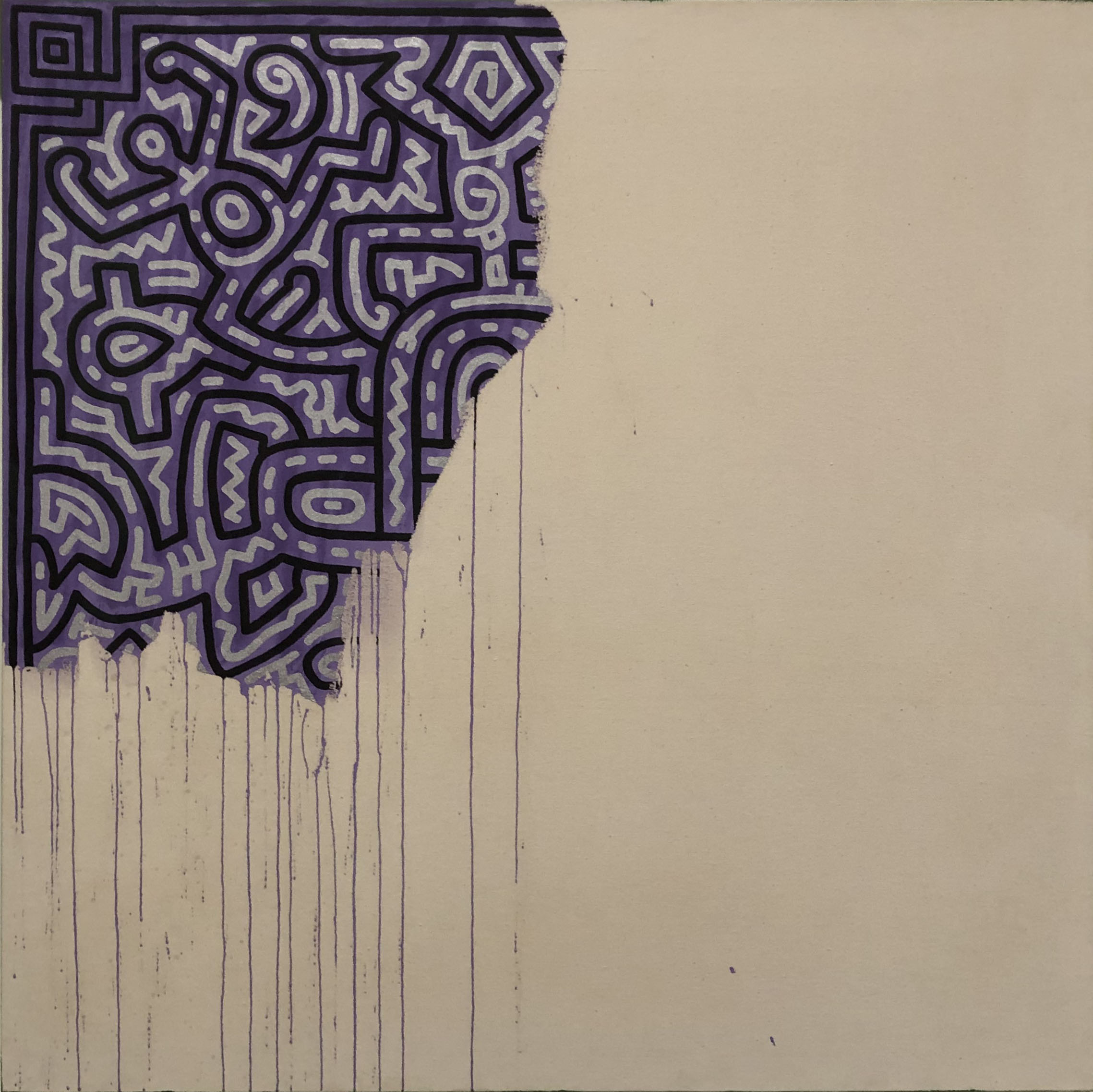
Keith Haring, Unfinished Painting, 1989. Private collection (Photo credit: Los Angeles County Museum on Fire on Fire)
Haring’s style frequently consisted of strange, bold figures such as the ones seen in this piece. Weaving an intricate quilt of figures and shapes, Haring accomplishes a fascinating emotion that is hard to capture. Even still, Haring is hardly scratching the surface of how deep abstract art can go.
Often when someone uninvolved in the arts bad-mouths painters for relatively simple designs, they come after abstract art. You’re sure to have heard “It’s just some random shapes.” or maybe even, “My kid could’ve made this.” at one point or another. This take comes from a lack of understanding about art and the abstract genre, which this blog intends to shed light on.
As with many things, the practice of abstract art had begun elsewhere in the world prior to the western understanding of it. However, abstract art as a formal movement had not begun until the early 19th century. Art up until that point had been held within the confines of representation of the real world in the most true and literal sense. At the time, the perspective known as romanticism started to appear. Romanticism was the attitude and criticism towards art during the 18th and 19th century that rejects the previous understanding of what art had to be. Structure, order, and balance were all cast to the side in favor of art that utilized the imagination to a much further and, well, abstract sense.
While not exactly the concrete beginning of the abstract movement, Dutch artist Piet Mondrian exemplifies and justifies abstract art in the clearest way possible. In his earlier years, Mondrian expressly utilized a realist style. However, there was always an element to the pieces that felt a bit more than simply realist. Even in one of his most literal pieces, “Farm Near Duivendrecht” (1916), there’s an element to his composition that feels otherworldly.
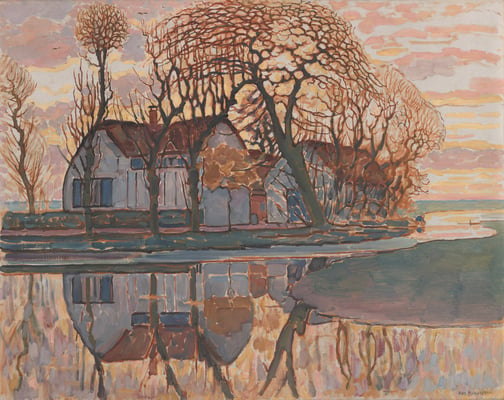
Piet Mondrian. "Farm near Duivendrecht," oil (Photo credit: Art Institute Chicago)
His use of color and understanding of natural elements feels so masterfully unique that one may just write it off as talent, but Mondrian himself has been on recorded as to understand his intent in art.
“Art is higher than reality and has no direct relation to reality. To approach the spiritual in art, one will make as little use as possible of reality, because reality is opposed to the spiritual. We find ourselves in the presence of an abstract art. Art should be above reality, otherwise it would have no value for man.” – Piet Mondrian
Mondrian stuck to this even harder as the abstract art movement began to pick up more and more. As Mondrian painted, his style continued to evolve into a simpler understanding of composition in such a way that evokes emotion rarely seen in art before. By the end of his career, he had effectively broken down and conveyed emotion purely through basic colors and geometric shapes.

Piet Mondrian. "Composition no 10," oil (Photo credit: www.piet-mondrian.org)
Ultimately, the deconstruction and abstraction of elements allowed for Mondrian to fulfill his mission statement of representing something above reality. Abstraction does not mean simple chaos on a canvas; it is a careful application of paint that truly broadcasts emotions that could not be conveyed any other way.
There are several abstract examples being offered in our July 2023 Gallery auction. Some notable arts being featured are Gladys Goldstein, Raoul Middleman, Neville Budhai, and Peter Robert Keil.
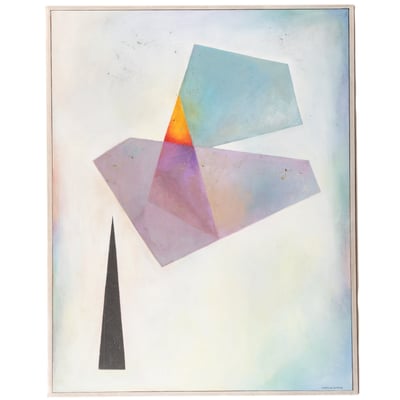
Lot 1222, Gladys Goldstein. "G-Works V," mixed media
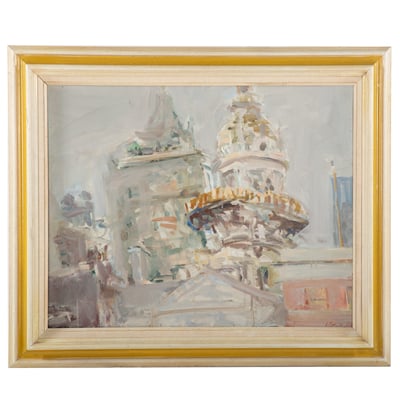
Lot 1233, Raoul Middleman. Muted City Scene, oil
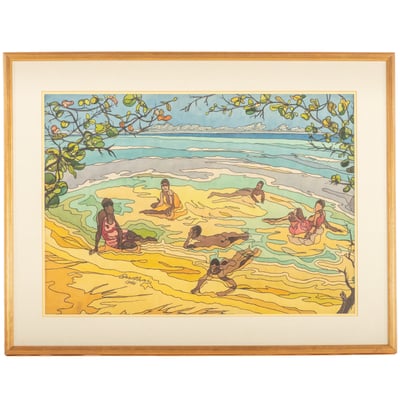
Lot 1207, Neville Budhai. By the Beach, watercolor
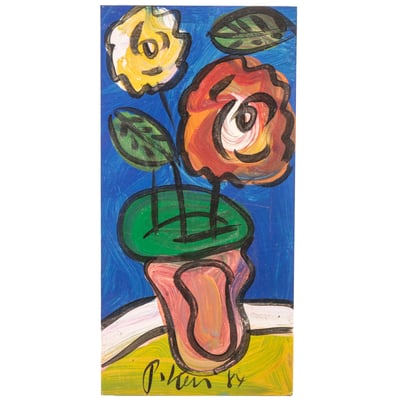
Lot 1327, Peter Robert Keil. "Vase of Flowers," acrylic
Next time you hear someone badmouthing abstract art, simply scoff and roll your eyes. They just don’t understand it like you do.
Keep an eye out for our next auction by following our Instagram or keeping up with this very website.
Be sure to check the auctions live right now at https://bid.alexcooper.com/, or, arguably even easier, download the Alex Cooper App, available on:
iPhone Users - The App Store
Android Users – The Google Play Store
Cormac Jensen
SCAD Class of 2025

If you like what you read, pass it on and share on social media! – Facebook & Instagram